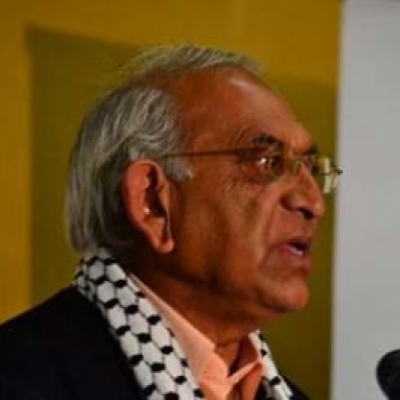



 Iqbal Jassat
Iqbal JassatOne of the blessings of South Africa's foreign policy vis-a-vis Palestine is that it stands miles apart from Germany's extremist right-wing bias in favour of Israel.
Of course, as advocates and solidarity activists for Palestine's freedom struggle against zionism’s brutal occupation, South Africa can do a lot more to isolate and sanction Israel.
However, in contrast to Germany, South Africa's pursuit of justice for Palestine, sets it miles ahead of many European countries, who remain exposed as mere bystanders while Israel defiantly violates laws they ostensibly subscribe to.
Germany for instance has embarked on new harsh measures to crackdown on pro-Palestine solidarity, and in blinded loyalty to Israel, is on the verge of criminalising speech and activism.
A recent report published by the German Conference of Interior Ministers (IMK), focuses on “prevention and intervention against Israel-related antisemitism”.
Using the canard of “antisemitism” as a shield to outlaw solidarity for Palestine, the IMK report seeks to manipulate education curriculum by urging schools to inculcate a more positive view of Israel in classrooms.
The report also suggests prohibiting maps that “question Israel’s right to exist”, though it remains unclear whether this directive includes maps of historic Palestine.
And in conflict with Germany's commitment to international conventions on racism, the report bizarrely categorizes Amnesty International’s well-researched findings on Israeli apartheid as “antisemitic”.
The report displays levels of utter contempt for truth and justice.
The shocking conclusions it arrives at reveals a total disconnect from reality.
To describe it as an incoherent account of unintelligible nonsense, would be entirely accurate.
Take for example its view on Boycott, Divestment and Sanctions (BDS) movement.
The report is a carbon copy of Israeli hasbara (propaganda) for it labels BDS as dangerous, antisemitic and claims that it consists of “foreign extremists, Islamist terrorist organisations and left-wing extremist groups”.
That the IMK may find resonance with Germany’s political elite, is borne out by the country's longstanding crackdown on pro-Palestine activism, particularly the BDS movement.
The 2019 Bundestag resolution—obviously heavily influenced by Israel—which classified BDS as “inherently antisemitic”, led to universities, state governments and public institutions to deny Palestinians the right to free speech and assembly.
Analysts have correctly concluded that Germany's gaping double-standards on free speech, has allowed censorship to contribute to a groundswell of anti-Palestinian propaganda.
Some insist that Germany's anti-Jewish pogroms of the past have hamstrung it to the extent that any official stance deemed to be critical of Israel, is a no-go area.
They also suggest that this handicap, if it can be called that, prevents Germany from giving expression to international conventions it has ratified.
However, to either fail or to obfuscate its responsibility is both cowardly and unjust.
In addition, being a signatory to the UN Charter, makes it obligatory on Germany to act without fear or favour in support of resolutions dictated by International Human Rights Law that are violated by Israel.
Failure to do so allows Israel to expand illegal settlement activities in direct contravention of the Fourth Geneva Convention, which Germany purports to uphold.
The list of Israeli violations is endless:
* Home demolitions;
* Arbitrary detentions;
* Extrajudicial executions;
* Targeted assassinations;
* Apartheid wall;
* Judaization of Jerusalem;
* Siege of Gaza...
Yet on the contrary, Germany has plans to snuff out solidarity for Palestine.
The IMK report is the latest in a series of acts to outlaw pro-Palestinian gatherings, activities and speech.
Recently draconian action by Berlin police led to the arrest and detention of 170 people during Nakba Day demonstrations.
This was all done in the name of protecting Israel, not justice for Palestine!
Iqbal Jassat is Executive Member, Media Review Network, Johannesburg, South Africa
